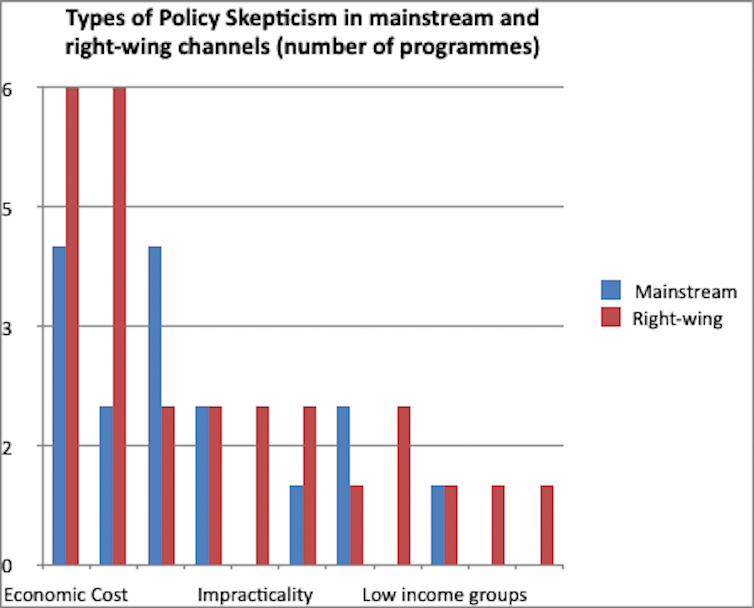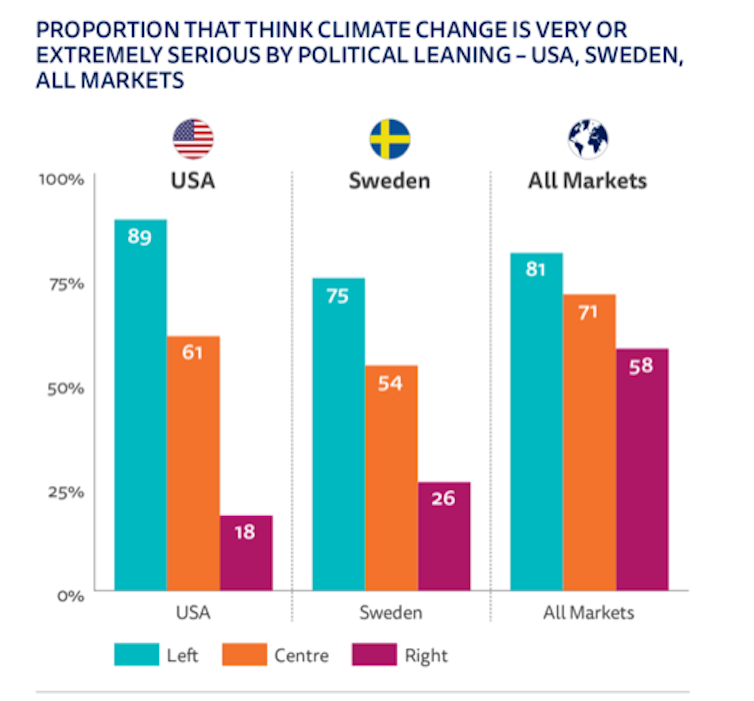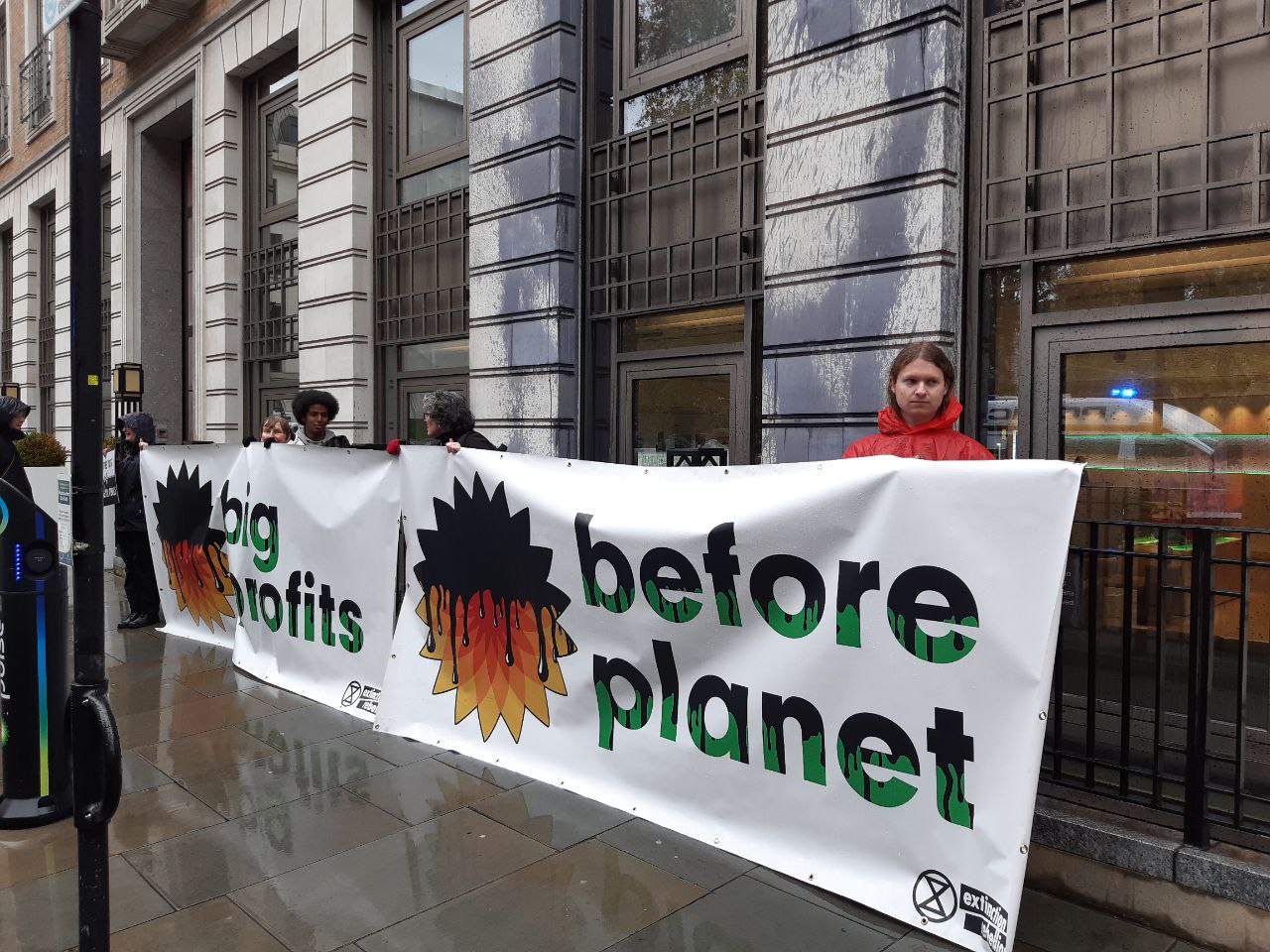Climate change: multi-country media analysis shows scepticism of the basic science is dying out
This article is republished from The Conversation under a Creative Commons license. Read the original article.

Frame Stock Footage/Shutterstock
James Painter, University of Oxford
Any regular viewer of BBC’s Question Time could be forgiven for thinking that old-fashioned climate science denialism is alive and kicking. In a recent edition, panellist Julia Hartley-Brewer called the IPCC’s climate models “complete nonsense”, and dismissed the 2022 record UK heatwave and the floods in Pakistan by saying: “It’s called weather.”
But for some time now, researchers have suggested that the balance of arguments propagated by climate sceptics or denialists has shifted from denying or undermining climate science to challenging policy solutions designed to reduce emissions.
For example, computer-assisted methods applied to thousands of contrarian blogs or websites have found that since the year 2000, “evidence scepticism” which argues that climate change is not happening, or is not caused by humans or the effects won’t be too bad, has been on the decline, while “response” or “solutions scepticism” has been on the rise.
In the US media and UK media, there is strong evidence too that the prevalence of these arguments may be shifting. By 2019 much less space was being given to those denying the science in newspaper outlets in Australia, Canada, New Zealand, the UK and the US, except in some right-leaning titles.

Skorzewiak / shutterstock
But what about television coverage? Recent survey work finds that in most countries, television programmes, including news and documentaries, are by far the most used source of information on climate change compared to online news, print or radio.
In a new study published in Communications Earth & Environment my colleagues and I looked at 30 news programmes on 20 channels in Australia, Brazil, Sweden, the UK and the US which included coverage of a 2021 report by the IPCC on the physical science basis of climate change. Australia, the UK and the US were chosen for their long history of climate scepticism, whereas Brazil and Sweden were included for the more recent arrival of scepticism among key political parties.
These channels included 19 “mainstream” examples such as the BBC, ABC in Australia and NBC in America, and 11 examples from a selection of “right-wing” channels ranging from Fox News, which commands a large audience, to more outliers such as GBTV in the UK, SwebbTV in Sweden, Sky News in Australia and Rede TV! in Brazil.
We then watched and manually coded all 30 programmes (around 220 minutes of content) for examples of the different types of scepticism present, following the broad distinction above between “evidence” and “response/policy” scepticism. But we also distinguished between “general response” scepticism, usually advanced by organised sceptical groups, and “directed” response scepticism, where country-specific economic, social and political obstacles to enacting climate policies were mentioned.
Science scepticism is no longer mainstream
First, we found that on mainstream channels, the presence of science scepticism, science sceptics and general contestation around the IPCC’s report was much less present in our sample than in the coverage of the previous round of IPCC reports in 2013 and 2014, even in countries that have historically had strong traditions of science denial.
Second, response scepticism was in some of the coverage by mainstream channels. But in most cases, these were examples of “directed” scepticism. In contrast, there was more non-specific response scepticism on right-wing channels such as right-wing politician and pro-Brexit campaigner Nigel Farage on GBTV arguing that “whatever we do here [in the UK], it’s China that needs to do far more than us”, or a commentator on Fox News suggesting that “only being able to fly when it is morally justifiable would lead to people having to entirely change their lifestyles”.
Also on right-wing channels, in four countries (Australia, Sweden, the UK and the US) sceptics were combining evidence and response scepticism. For example, Fox News continued its historical record of scepticism by criticising the IPCC report and hosting evidence sceptics, but it also included a wide range of examples of response scepticism (such as the infringement on civil liberties by taking climate action).
Finally, we looked at the sorts of arguments that were being made, following a useful taxonomy of climate scepticism or obstructionism published in the journal Nature in 2021. We found a wide variety of claims, but the most common concerned the high cost of taking action and “whataboutism” (typically questioning the need to take action when other countries such as China were not doing enough).

Painter et al / Nature Comms, Author provided
Why does this matter? First, how these arguments play out on television is hugely important because of its dominance as a source of climate information. Second, there is strong evidence that media has a very powerful agenda-setting effect, and in certain contexts, can exert a strong effect on attitudes and behaviour change.
Legitimate policy discussion needs to be carefully distinguished from false claims put out by organised sceptical groups. But for those active in opposing organised scepticism, any definitive shift towards response scepticism across the media, such as vocal opposition to net zero policies, represents an important new challenge to climate action.![]()
James Painter, Research Associate, Reuters Institute, University of Oxford
This article is republished from The Conversation under a Creative Commons license. Read the original article.




